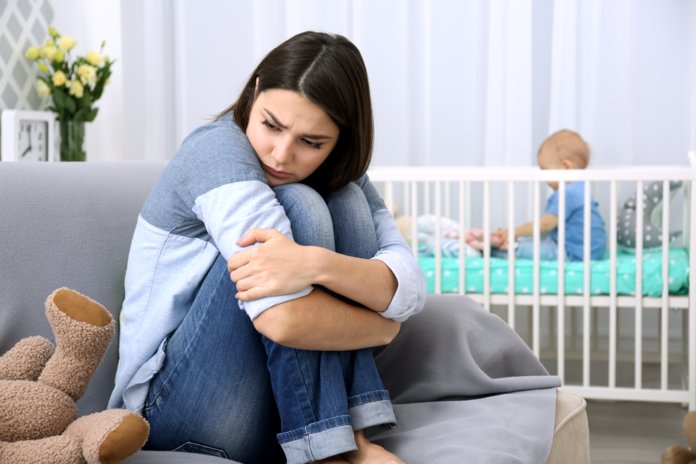
The birth of a child is one of the most important and happiest moments in the life of every woman. But this event is not always accompanied only by joyful emotions. Not every mother copes with the responsibility associated with the appearance of the child. Therefore, a woman must learn to cope with a depressive state.
The concept of postpartum depression
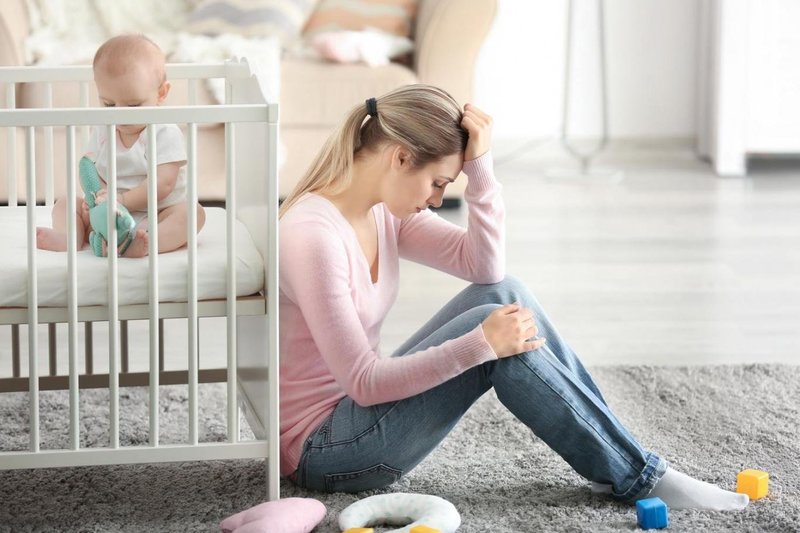
Postpartum depression is a woman’s mentally unstable condition that occurs after childbirth or pregnancy failure. Such a diagnosis is made by 10-15% of mothers.
At the initial stage, a woman’s depressive state is safe, but if left untreated, it can develop into a serious illness. A depressed state is transmitted to the child and affects his physical development.
The main task of a woman after the birth of a child is to not let herself lose heart and lose interest in life. If you find the first symptoms of postpartum depression, you must immediately eradicate them and enjoy motherhood.
Causes
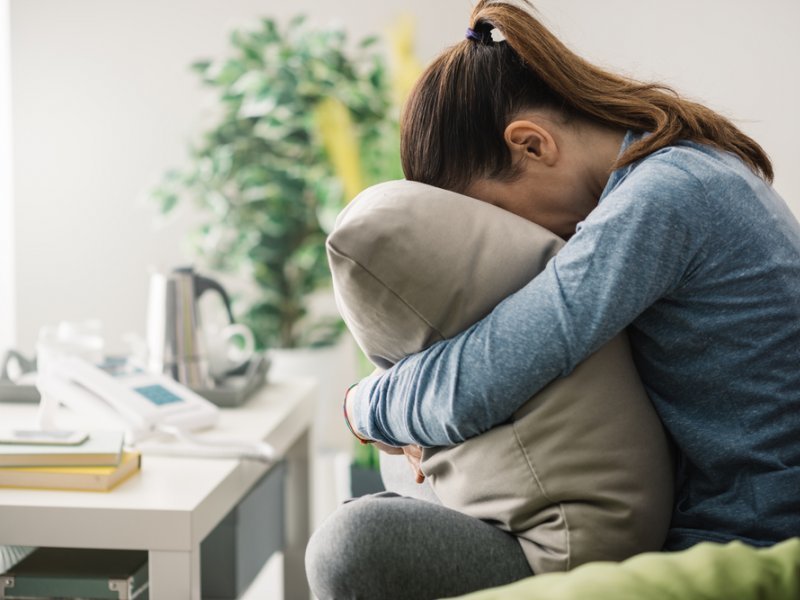
Almost every woman is affected by postpartum depression. But first of all, it affects those who had the following problems before pregnancy:
- Psychological disorders;
- The absence of a loved one nearby;
- Health problems.
Based on the foregoing, the main causes of postpartum depression can be identified. These include:
- Difficult birth;
- Unwanted pregnancy;
- Mother or newborn disease;
- Disorders and negativity in the family;
- Single mother status;
- The restructuring of life before the baby and after.
Every expectant mother expects that after the appearance of the child, maternal feelings will immediately wake up in her. Unfortunately, this does not happen immediately, so the woman is disappointed and depresses herself with thoughts that she is a bad mother.
Remember, it takes time to establish emotional contact with the baby. Be patient.
Not only women suffer from postpartum depression. Fathers are also affected by this ailment. According to statistics, 1 out of 25 popes experiences symptoms of a depressed state.
Symptoms

The first 10-15 days after birth, the woman experiences weakness, fatigue. She has a changeable mood and this phenomenon is quite normal. If symptoms disappear within two weeks, there is no question of postpartum depression. It lasts longer - on average several months. If you don’t consult a psychologist in time and start treatment, postpartum depression can become a common depression. After all, not only months, but also years will separate it from childbirth.
Postpartum depression does not necessarily start from the moment a woman and child are discharged from the hospital. It can begin at any time for one year. Regardless of how many children have women, depression can occur both after the first birth and after any subsequent ones.
The main symptoms of postpartum depression:
- Mood swings, irritability, constant bad mood;
- Not enough energy, low working capacity;
- Fallen interest in the world around and favorite things;
- Sleep problems: both drowsiness and insomnia;
- The appetite completely disappears or increases sharply;
- There is no desire to communicate with people around;
- It is difficult to concentrate on one thing and keep one's attention;
- Scary thoughts appear. For example, harm yourself or your child;
- It becomes almost impossible to care for a child.
The above symptoms appear sequentially and collectively. Therefore, often postpartum depression is simply not noticed.
Depression does not fit into the general concept of the birth of a baby. After all, a woman should be happy that she gave birth to a child, and experience happiness. If a woman is depressed, then motherhood becomes a burden to her. As a result, phrases are added to the main guilt feeling that she “cannot cope” and “the wrong mother”.
In addition, others do not support the woman. On the contrary, they say that she only complains and does not rejoice at all, although in reality she should shine with happiness. This greatly exacerbates both depression and its symptoms.
Types of Postnatal Depression

In the postpartum period, a woman may experience psychological and emotional disorders, which are divided into the following types:
- Melancholy;
- Psychosis;
- Depression.
Melancholy - A common psychological disorder encountered by 50-60 percent of women after the birth of the baby. Experts say that due to hormonal disruption and changes in the emotional background, the occurrence of melancholy is a natural phenomenon.
Depression occurs a few days or weeks after birth. Its symptoms are similar to manifestations of melancholy, but they are more intensified and painful. A woman becomes unable to carry out daily activities and does not cope with maternal responsibilities. There are a number of mothers who claim that being in postpartum depression could not control their emotions.
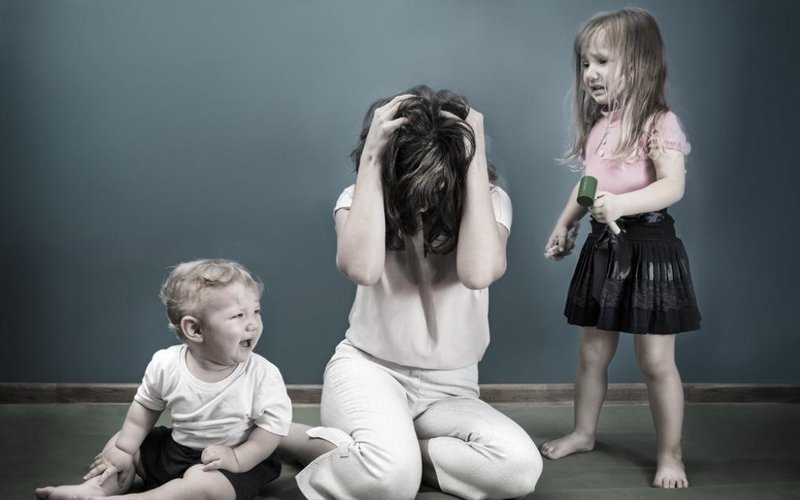
Psychosis Is a collective term that refers to severe psychotic disorders. They occur in the first few months after birth. But it should be noted that psychosis is quite rare - about one woman per 1000 newly minted mothers.
Mothers with psychological disorders lose the opportunity to distinguish fictional events from real ones. They have sound hallucinations, patients hear voices that order them to perform any action. Under the influence of psychosis, a person becomes dangerous for himself and his child.
Treatments for Postpartum Depression

At the initial stage of postpartum depression, a woman can try to cope with the symptoms herself. But if the situation gets out of control, you can resort to the following methods:
- Meditation;
- Psychotherapy;
- Special breathing technique;
- Art therapy;
- Drug therapy;
- Hypnosis.
A mother who has been found to be depressed should take care meditation. There is nothing complicated about it and you can conduct sessions at home. If there is no willpower, then you can cope with a depressed mood in special clubs for mothers, where they conduct auto-training and meditation.
To get rid of depression, mom can usepsychotherapy.As a home doctor are friends, parents or husband. If, having spoken to them, the state of the mother has not improved, then you can turn to professional psychotherapists for help.

The following drugs are included in the treatment of postpartum depression with medications:
- Normotimics - drugs that improve mood;
- Tranquilizers - medicines with a calming effect. They are used to suppress fear, anxiety, etc.
- Antidepressants - psychotropic drugs that affect the level of serotonin in the body of a woman.
Drug treatment of postpartum depression is extremely rare. Especially drugs are forbidden to mothers whose children are breast-fed.The composition of medicines includes harmful components that are dangerous to the health of the child.

Another effective treatment for depression isart therapy.To forget about problems and bad mood, mom can do:
- Music
- Dancing
- By drawing;
- By singing.
A woman can convey all her emotions on the canvas. Thanks to the active movements of the dance, oxygen will enter the blood and the mood will rise.
With the help of hypnosis, the causes that caused the depressive state are neutralized.
If the depression is really serious, at the initial stage it is still recommended to carry out drug treatment. To completely eliminate the symptoms of depression, drugs will need to be taken for at least 3 months.
How to deal with postpartum depression on your own?

To cope with postpartum depression on her own, a woman will need a lot of rest. For example, sleep at least 8 hours a day, regularly exercise, eat right. Despite the fact that routine matters take up most of the time, you should not give up entertainment. Do not ignore the opportunity to take a walk in the fresh air, swim in the ponds, and bring positive moments to life.
Create a calendar of important tasks and schedules and try to follow it. Ask relatives and friends to call regularly. In no case do you isolate yourself from the outside world, because this will further aggravate the situation. Get as much sunlight as possible. Remove the curtains from the windows and go outside as much as possible. Do not consume caffeine and alcohol.
Participate in any social groups for mothers, communicate at playgrounds, as well as early development courses for children or while waiting for a pediatrician. Such seemingly simple recommendations will help get out of depression or prevent it.
Prevention of Postnatal Depression
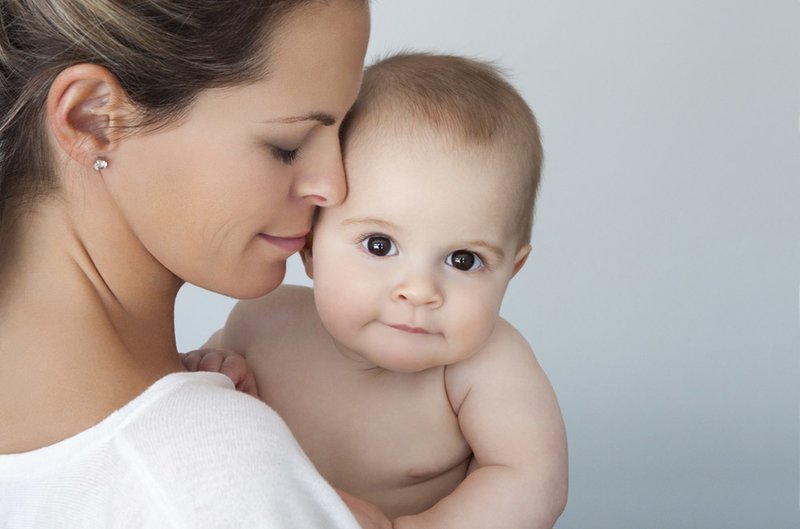
The first thing a woman must do to prevent depression is to not forget about herself and her feelings. Secondly, try to relax more and spend time with the child. There are several other ways to prevent postnatal depression:
- Learn how to calmly react to what is happening around. A study by a group of scientists at an English university in 2024 proved that the baby responds better to a calm mother. If you relax at least 15 minutes a day (meditation, taking a bath, breathing practice), then coping with the stresses of motherhood will be easier.
- Sleep with your baby. Most young mothers have heard about such advice as how to sleep while the baby is sleeping. But most women do not follow the advice, preferring to do household chores in their free time, cook dinner or surf the Internet while sleeping with a baby is very important. It helps relieve daily fatigue.
- Go in for sports. Women who perform any physical exercise, from a psychological point of view, are more stable and socially open. We are not talking about serious training or anaerobic (strength) exercises at home. To increase blood circulation in the body and improve the condition of the body, just walk a quick step along the street for 30 minutes.
- Think of motherhood as your main job. We all know how stressful the first months of work in a new place can be. So motherhood is the same, although it is not limited to hours, which is not very good. However, if motherhood is perceived as working with long-term goals and objectives, then managing energy and its resources will be much easier.
In order to prevent the occurrence of postpartum depression, a mother should, first of all, concentrate on the baby. Secondly, do not be afraid to ask for help from relatives if it is difficult or something does not have time to do around the house. The kid requires a lot of attention and therefore do not worry if you can not do what is planned. Tune in to positive and enjoy motherhood!


































